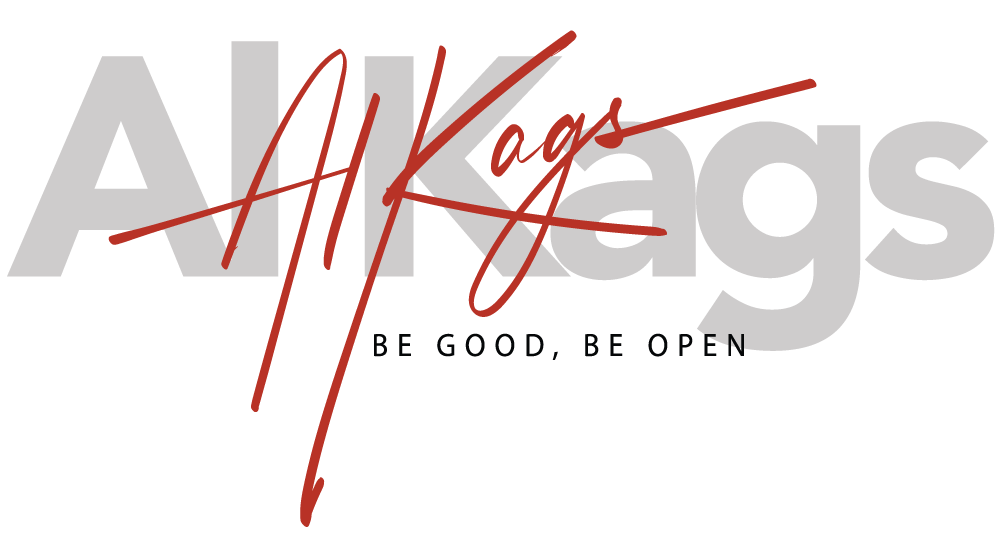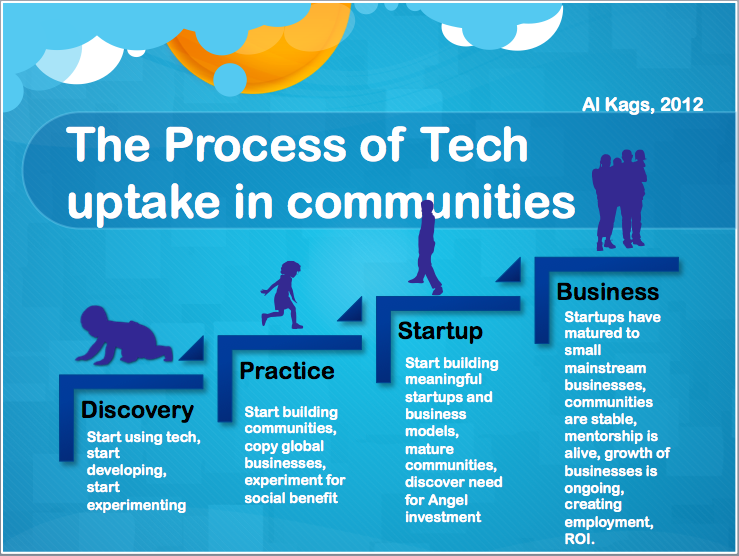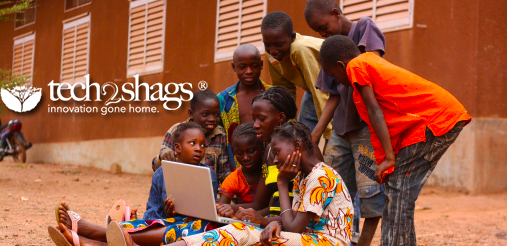Today, it was suggested that I am loosing my business touch – with regards to Kenya’s development – and that I was getting perhaps a little too socialist in my ideas of what it would take to develop ICTs in the country. Certainly, Kenya has come a long way since 2006, when I really started working in the ICT4D space in Kenya. For one, I am blogging this from the DEMO AFRICA event at the Kenyatta international Conference Centre in Nairobi from my laptop. I am connected to my Orange 3G internet dongle that is running speeds of about 33MBPS although there is a 10MB dedicated link from Safaricom that is providing enough bandwidth for this event to be streamed live over the internet. I paid my rent this month via MPESA, I can check my bank balance via my mobile phone and as I am taking my wife to a play this afternoon, I could buy the tickets online.
At Demo Africa, some of the startups that pitched for investment (from Kenya) include Kytabu, developed by Tonee Ndungu and Joyce Mbaya – who are bringing the idea of digital text books for primary and secondary schools to be a reality in Africa. Other applications that I saw included Mtracker that empowers motorists never to loose their cars, Crowdpesa and Mpeya a mobile enabled business transactions and accounting app.
![]()


For me, Demo Africa represented an important milestone in Kenya’s development of ICT. It said to me, “we have grown up.” The startups that were pitching for partnerships and for investment are actually startups that are already very sound businesses in their own right and that need to scale. Which says that we have moved away from when people like myself were starting out where we were so enamoured with technology that we failed to see business value out of it – and I realise now that it was a process.
The process for any community for technology uptake as I see it is as follows:
Where I see us as a country being is on the verge of moving to the fourth phase – with companies like Verviant, Symbiotic and Intrepid being some of the movers into that space within just a short time.
But.
What made my friends suggest that I may be getting too “Socialist” in my leanings (and in the way they said it, it was a negative development on my part), was that I pointed out that the current innovation community is one that lives in Nairobi – and does not move far out of there. I suggested to Paul Kukubo and Andrew Lewela of the Kenya ICT Board as well as Mbugua Njihia that while it is true that Kenya has come a long way; and while we must push hard for the entrepreneurs that are ready to forge out of the pack and really succeed – because that will cement our position, we must slowly now begin to bring other entrepreneurs who never come to the capital onto the mix.
Maybe I convinced them, maybe I didnt. But in this respect, I want to achieve this in 2013, to catalyse the rise of new ICT communities – of developers and innovators in other parts of the country, from Malindi and Lamu to Kitui and Nyandarua to Kitale, Webuye and Kakamega. I want to see Mobile Monday events being held in those places, and skunkworks set up in their counties. I want to see innovation hubs set up in Kisumu, Nakuru, Kakamega, Kitale, Machakos, Kitui, Voi, Malindi, Mombasa… and I want to see Nairobian Skunks and people from iHub, Nailab, iLab etc, begin to have events and collaborations in those places.
The temptation is to keep this within universities. My view however is to build communities outside the universities that are close to the universities so that everyone who has an interest in ICT can participate.
Right now, I am building a coalition of the willing, people who see the opportunity as I do so that we can start widening the innovation community. Lets start talking about taking Tech 2 Shags®





While I appreciate the need for technology to spread throughout the nation, I think the very first thing we need to do is to get the enterprises outside Nairobi to be avid consumers of technology. A lot of these businesses are happy having a manual modus operandi. If we can change this, make them utilize tech widely in their day-to-day operations, then the need to develop tech spots/events/communities will be automatic. The donkey must drag the cart, not vice versa.
Excellent. The only thing is this. The people who actually evangelise usage are the local people who drive uptake of technology by finding local relevance. This cannot successfully be done by Nairobians in Nairobi much more than it already had. Therefore build the tech communities and they will bring users. This is how it has been… Someone has to be there locally to help them understand relevance and making sure people take it up. As you say, the donkey must drag the cart.
Am in agreement. Although far away from Nairobi at the moment (in Germany)-having been part of the Nairobi IT landscape for over 11 years (till mid 2011)-I believe in our ability to achieve our dreams but I#m also aware of the existing limitations i.e. access to finance, intellectual asset protection, marketing, project management etc.
So incase you are looking for willing people to push the initiative-do count on me. I hope some people will benefit from my past mistakes.
We are on the same page in this regard. Innovation is truly more about people and ideas and less about infrastructure. http://bit.ly/xjXVxC, I think a good starting point is the universities
this is a great idea, having Digital centers of excellence closer to the masses or rather last-mile population will not only spark the culture to innovate but bring on board a larger ecosystem of developers across the board. will be glad to share my experience from my PASHA experience
Congratulations on setting out a bold vision. While there is clearly much to be done, I'm sure your "socialist" tendencies will help you in that regard 😉
I just have a few comments/questions:
1. For those of us not in the know, what are shags as in Tech2Shags? I know several meanings of the word but none of them seem appropriate for this.
2. I agree with your perspective. If you can build communities in those places, that will help with the education of the local population. While the goal is to enable locals to solve their own problems using technology, the Internet is global and there are plenty of problems to practice on while the local population becomes more technologically literate. Building the community of developers will take longer and also offers immediate potential opportunities for the developers themselves in terms of jobs, etc. – this makes it an easier starting place with direct effects on the other issue.
3. There's no reason Mobile Mondays couldn't be expanded, or a related event set up that is fun and engaging for people who want to learn more about technology. Interesting to think about developers taking up positions as educators within their own communities at these events. This could put them in even better touch with the local needs that they may be able to solve, while also providing them with an initial base of beta testers and users.
4. In reality, how are your ideas socialist? I am confused by the application of this term to what you are proposing but would like to understand the perspective of your critics. It all sounds pretty darn capitalist to me (and I mean that in the nicest sense of the word).
5. Under the 3rd of your 4 step process, Startup, you mention "discover need for angel investment" as one of the occurrences at that stage. While you don't say that this is the only way to success, I think it's important to maintain the perspective that not all businesses need angel investment in order to succeed. I bring this up because all too often in the tech community here in the US, it seems that getting angel investment is seen as success in and of itself, which results in little support or advice being given to those that could succeed without it.
Keep up the good work!
loosing touch?